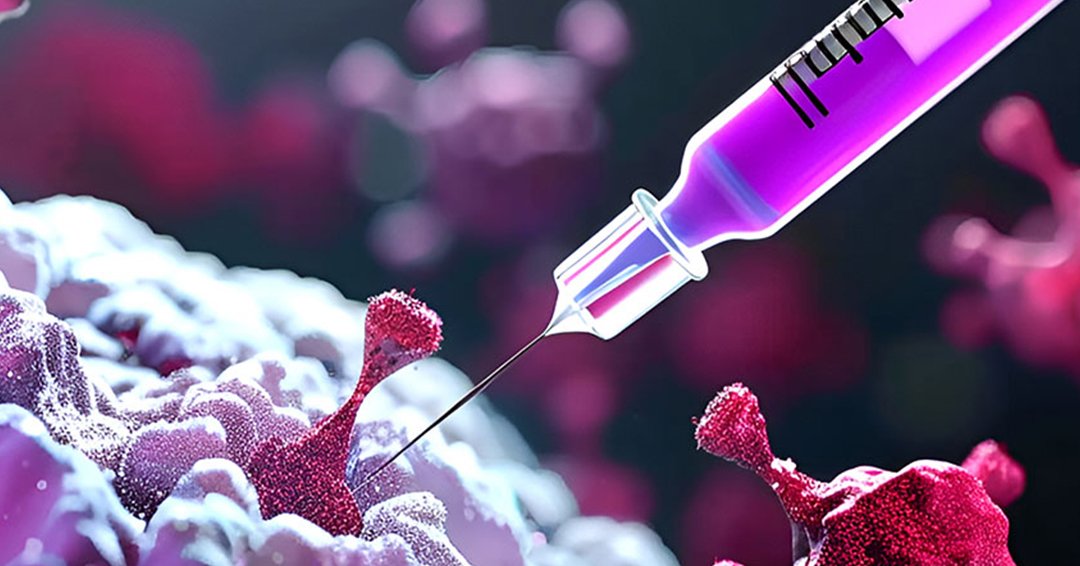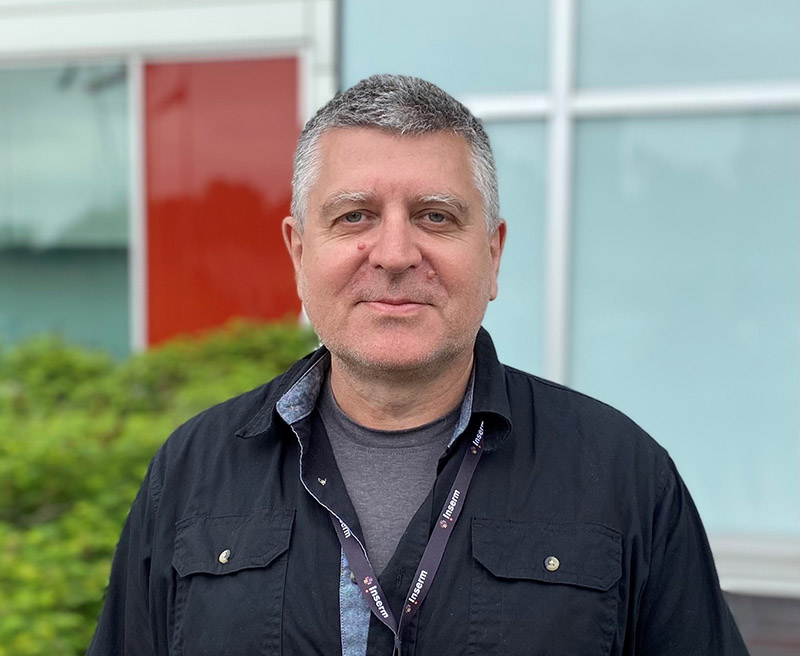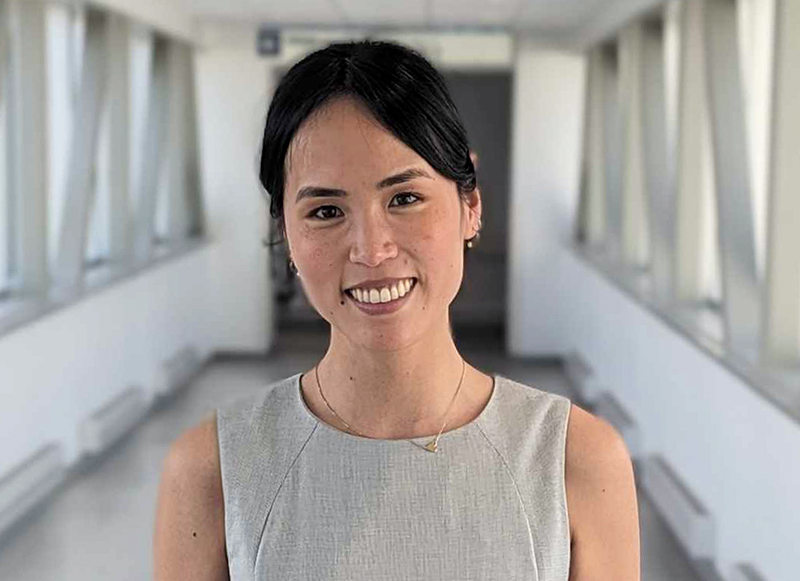
RI-MUHC team takes another step toward precision medicine by targeting a biomarker of CDK4/6 inhibitor efficacy in breast cancer, including triple-negative breast cancer
Highly aggressive and prone to recurrence, triple-negative breast cancer (TNBC) is a subtype of breast cancer that often affects women under 50. Due to the lack of targeted treatment, survival rates are low for this cancer. However, according to a laboratory study conducted at the Research Institute of the McGill University Health Centre (RI-MUHC) and published in Molecular Cancer, CDK4/6 inhibitors – drugs that have revolutionized care for a more common type of cancer, hormone receptor-positive (HR+) advanced breast cancer – may be effective against TNBC when certain genes are present.
Using CRISPR technology, which allows genes to be isolated and “turned off” one by one to understand their individual function, the research team identified genes predictive of the efficacy of palbociclib, a widely used CDK4/6 inhibitor, and demonstrated that high TGFb3 gene expression, in particular, could increase the efficacy of palbociclib against TNBC. The study also suggests that a synergistic therapeutic effect could be achieved using a drug that increases TGFb3 gene expression. These results may make it possible to identify, in people with TNBC or other solid tumours, those who carry genes associated with the efficacy of CDK4/6 inhibitors, in order to personalize their treatment.
“CDK4/6 inhibitors are not offered to TNBC patients, because they are considered ineffective in this subtype of cancer,” explains Sophie Poulet, Ph.D., the first author of the study who was a doctoral student at the RI-MUHC at the time of the study. “However, recent data lead us to believe that the reality is more nuanced, so we looked for a way to predict which TNBC tumours might respond to this type of inhibitor.”

“This is the first published study to use in vivo CRISPR technology to probe the 20,000 human genes to identify those important in predicting cancer cell response to CDK4/6 inhibitors,” says Jean-Jacques Lebrun, Ph.D., Senior Scientist in the Cancer Research Program at the RI-MUHC and Professor of Medicine at McGill University, who led the study. “We hope that our very encouraging findings will be confirmed in further studies and lead to the development of clinical trials.”
How CDK4/6 inhibitors work
CDK4/6 proteins, present in both healthy and cancer cells, control the rate at which cells grow and divide. In breast cancer, these proteins can become overactive, leading to uncontrolled cell growth and division. CDK4/6 inhibitors interrupt the action of these proteins, slowing or even stopping the growth of cancer cells.

“Initially, CDK4/6 inhibitors were tested in all breast cancer subtypes, and triple-negative breast cancers proved resistant to these drugs. It was long assumed that this was because TNBCs were deficient in Rb, a protein present in cells that depend on CDK4/6 for survival and respond to CDK4/6 inhibitors,” explains Sophie Poulet.
“We hypothesized that this was the wrong explanation because up to 70 per cent of TNBCs do not have Rb protein deficiency. In addition, recent studies have shown that TNBC cells can be sensitive to CDK4/6 inhibitors. So our goal was to better define what makes a cell sensitive or resistant to CDK4/6 inhibition, beyond simply using Rb status,” she adds.
The search for biomarkers that predict the efficacy of CDK4/6 inhibitors is important not only to identify subgroups of patients who are likely to benefit from treatment, but also to target those who should be offered an alternative. In short, the discovery of biomarkers may help physicians to offer their patients the most appropriate therapies for their individual situation and to make the best possible clinical decisions.
Harnessing the potential of the CRISPR approach
Thanks to the CRISPR genetic manipulation system, the researchers first obtained a list of 205 genes capable of sensitizing cells to the action of palbociclib. These were then crossed with 38 breast cancer cell lines, classified according to their levels of sensitivity/resistance to palbociclib. This enabled the researchers to ensure that the genes found were relevant in the wider context of breast cancer, not just TNBC.
The researchers then tested the action of eight of them in the lab, in a preclinical model of TNBC. When the team manipulated TGFb3 gene expression in the laboratory, it became clear that higher expression led to a better response to palbociclib.
In reviewing the scientific literature, the team discovered that a TGFb3 -based therapy (avotermin) had been in clinical trials for the prevention of scarring. They acquired a similar product (called human recombinant TGFβ3), and set out to measure the therapeutic efficacy of its combination with palbociclib.
“Not only did we discover that high levels of TGFb3 amplified the response to palbociclib, but that the TGFβ3-amplifying drug worked synergistically with palbociclib, enabling greater efficacy while using lower doses of each,” says Prof. Jean-Jacques Lebrun. “Science sometimes surprises us, and we hope to continue our work to validate our findings in breast tumour samples from patients with known responses to palbociclib or other CDK4/6 inhibitors.”
Why is TNBC difficult to treat with currently available therapies?
Unlike other breast cancers, TNBC cells lack the hormone receptors and HER2 protein for which targeted treatments exist. As a result, these cancers, which account for 10-15 per cent of all breast cancers, are primarily treated with chemotherapy, surgery, radiotherapy and immunotherapy, but recurrence and mortality rates remain high. Fundamental research aimed at better understanding the cellular and genetic mechanisms involved in disease development and treatment is essential for the discovery of effective therapies.
About the study
The study Genome-wide in vivo CRISPR screen identifies TGFβ3 as actionable biomarker of palbociclib resistance in triple negative breast cancer was conducted by Sophie Poulet, Meiou Dai, Ni Wang, Gang Yan, Julien Boudreault, Girija Daliah, Alan Guillevin, Huong Nguyen, Soaad Galal, Suhad Ali and Jean-Jacques Lebrun.
The study was funded by the Canadian Institutes of Health Research. Sophie Poulet received scholarships from the RI-MUHC and McGill University during her doctoral studies.
